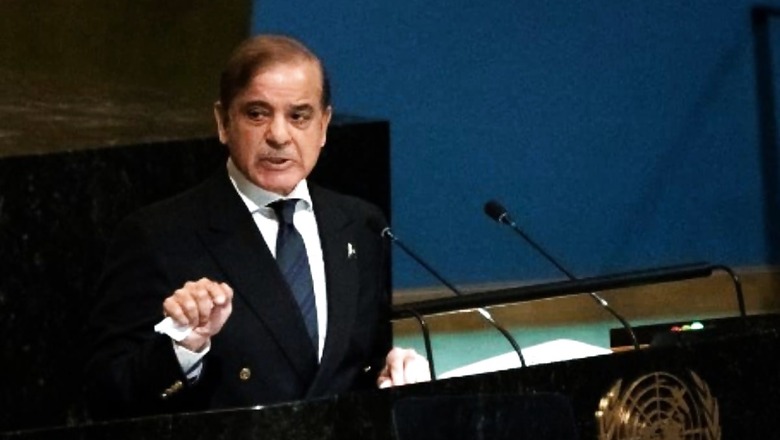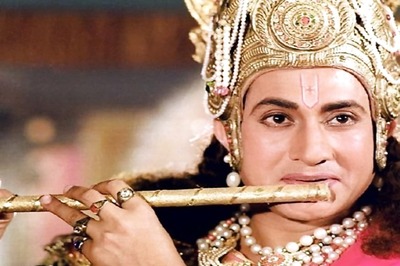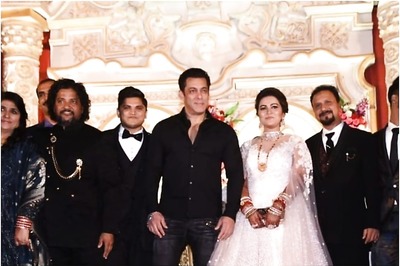
views
The Pakistan government is set to introduce a legislation to curtail the chief justice’s powers to form a bench of his choice. CNN-News18 has accessed the draft of proposed amendments.
The federal cabinet has approved the draft legislation for judicial reforms.
The government aims to dilute the chief justice’s discretionary powers to three seniormost judges of the Supreme Court.
The bill proposes that the three senior-most judges of the Supreme Court will decide on their own notice. It proposes to give the right to file an appeal within 30 days against the decision of the suo motu notice. According to the bill, the appeal must be fixed for hearing within 14 days of filing.
CRACKS IN JUDICIARY
As if the political and economic crises were not enough in Pakistan, cracks appeared in the top judiciary of the country on Monday after two judges challenged the chief justice’s power to form a bench or take suo motu notices.
Justice Syed Mansoor Ali Shah and Justice Jamal Khan Mandokhail of the Supreme Court in their detailed dissenting judgment in a case decided earlier this month, called for revisiting the power of the “one-man show” enjoyed by the chief justice.
Their judgment is about the case of suo motu notice taken by Chief Justice Umar Ata Bandial on February 22 about elections in Punjab and Khyber Pakhtunkhwa (KP) provinces.
The court’s five-member bench on March 1 by a 3-2 majority decision directed the Election Commission of Pakistan (ECP) to consult with President Arif Alvi for polls in Punjab and Governor Ghulam Ali for elections in KP.
Justice Shah and Mandokhail differed with the majority judgment, which also allowed the ECP to propose a poll date that deviates from the 90-day deadline by the “barest minimum”, in case of any practical difficulty.
In their detailed 28-page note, the two dissenting judges talked at length about the suo motu powers, saying that the top court’s “original jurisdiction” under Article 184(3) of the Constitution was not only “‘discretionary’ but also ‘special’ and ‘extraordinary’, which is to be exercised ‘with circumspection’ only in ‘exceptional cases’ of public importance relating to the enforcement of fundamental rights that are considered ‘fit’ for being dealt with under this jurisdiction by the court”.
The two judges said they had “serious reservations on the mode and manner how the original jurisdiction of this court under Article 184(3) was invoked suo motu in the present matter as well as on the constitution of the nine-member bench” which they expressed in the additional notes of the February 23 order.
It is pertinent to mention that a nine-member bench was set up for the suo motu case but later the bench was reconstituted to include five judges.
‘ONE-MAN SHOW’
The two proposed “a rule-based system approved by all judges” in regulating the exercise of its jurisdiction under Article 184(3) including the exercise of suo motu jurisdiction; the constitution of benches to hear such cases; the constitution of regular benches to hear all the other cases instituted in this court; and the constitution of special benches.
“The power of doing a ‘one-man show’ is not only anachronistic, outdated and obsolete but also is antithetical to good governance and incompatible to modern democratic norms,” they said.
“One-man show leads to the concentration of power in the hands of one individual, making the system more susceptible to the abuse of power. In contrast, a collegial system with checks and balances helps prevent the abuse and mistakes in the exercise of power and promotes transparency and accountability.”
They further demanded: “Therefore, the one-man show needs a revisit as it limits diverse perspectives, concentrates power, and increases the risk of an autocratic rule.” The judges said the “unbridled power” enjoyed by the chief justice to form benches had brought “severe criticism and lowered the honour and prestige of this court”.
The development comes as the top court is hearing a case about the decision of the Election Commission of Pakistan to postpone the provincial election till October 8 which is well beyond the 90 days deadline by the constitution to hold elections after the dissolution of an assembly.
With PTI Inputs
Read all the Latest News here


















Comments
0 comment